At the beginning of the 2023 winter break, Tsinghua University restarted its overseas social practice programs, which had been suspended for three years. Twelve teams went to ten countries to explore the frontiers of international science, technology and innovation through visits and meetings. Through the programs, they witnessed China’s contribution to global development, and demonstrated the value of youth in international exchanges.
Exploring Academic Frontiers
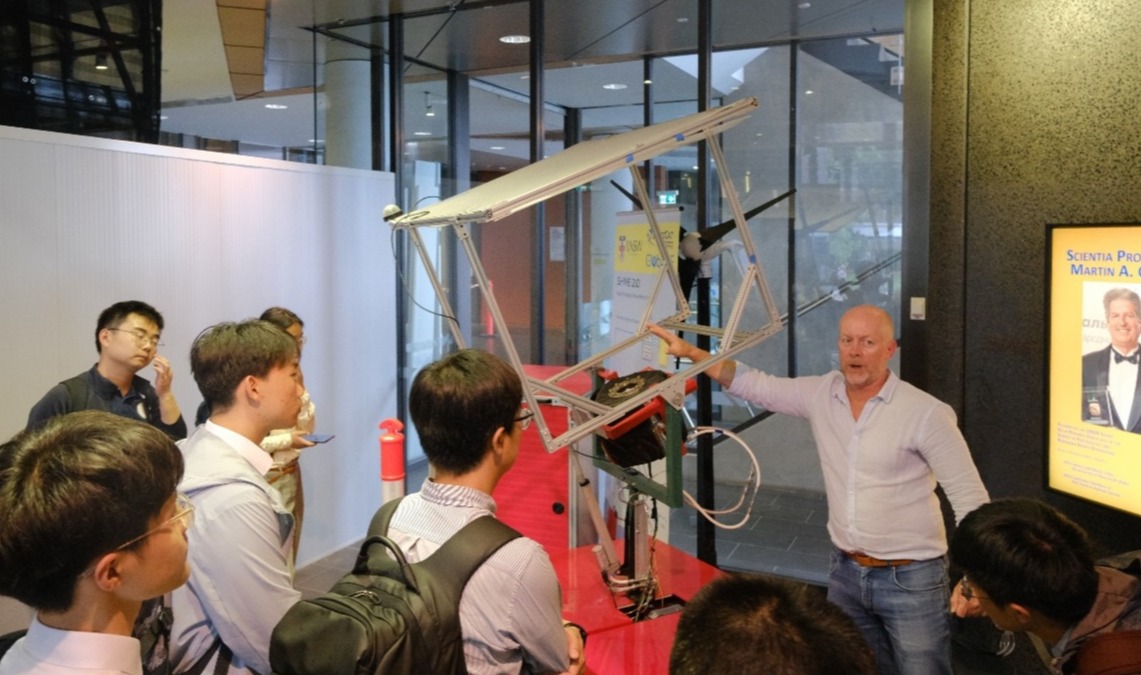
Professor Jason Scott introduces the solar photothermal hydrogen production system to the team from Tsinghua’s Department of Energy and Power Engineering.
The University of New South Wales (UNSW), located in Sydney, Australia, boasts the largest engineering school in Australia. On Feb 14, the team from Tsinghua University’s Department of Energy and Power Engineering visited UNSW. Guided by Professor Jason Scott, head of one of the university’s laboratory on hydrogen energy, the team members visited the exhibition hall of UNSW, where they showcased renewable energy and took a closer look at the solar photothermal hydrogen production system designed and manufactured by UNSW’s science and technology innovation teams. They also had a vibrant discussion with local teachers and students on the development of hydrogen energy and solar energy utilization technology.
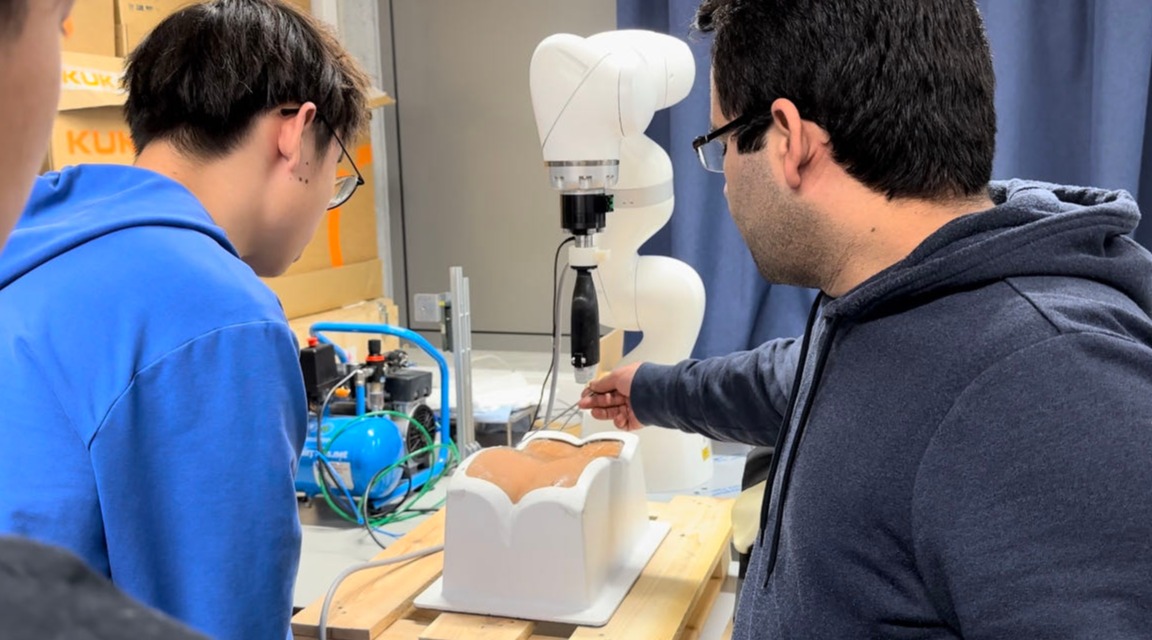
Doctoral students of KU Leuven discuss the results of scientific research projects with team members from Tsinghua’s School of Medicine.
With a history of nearly 600 years, KU Leuven is a world-class university renowned in the medical field. On Feb 9, a team from Tsinghua University School of Medicine went to KU Leuven to learn about the training of medical professionals and the commercialization of scientific research achievements. The team members visited laboratories, learned about related research projects, and took a closer look at the surgical robots used in research. They also exchanged ideas with local students on topics such as personal development, career planning, and the future development of the discipline.
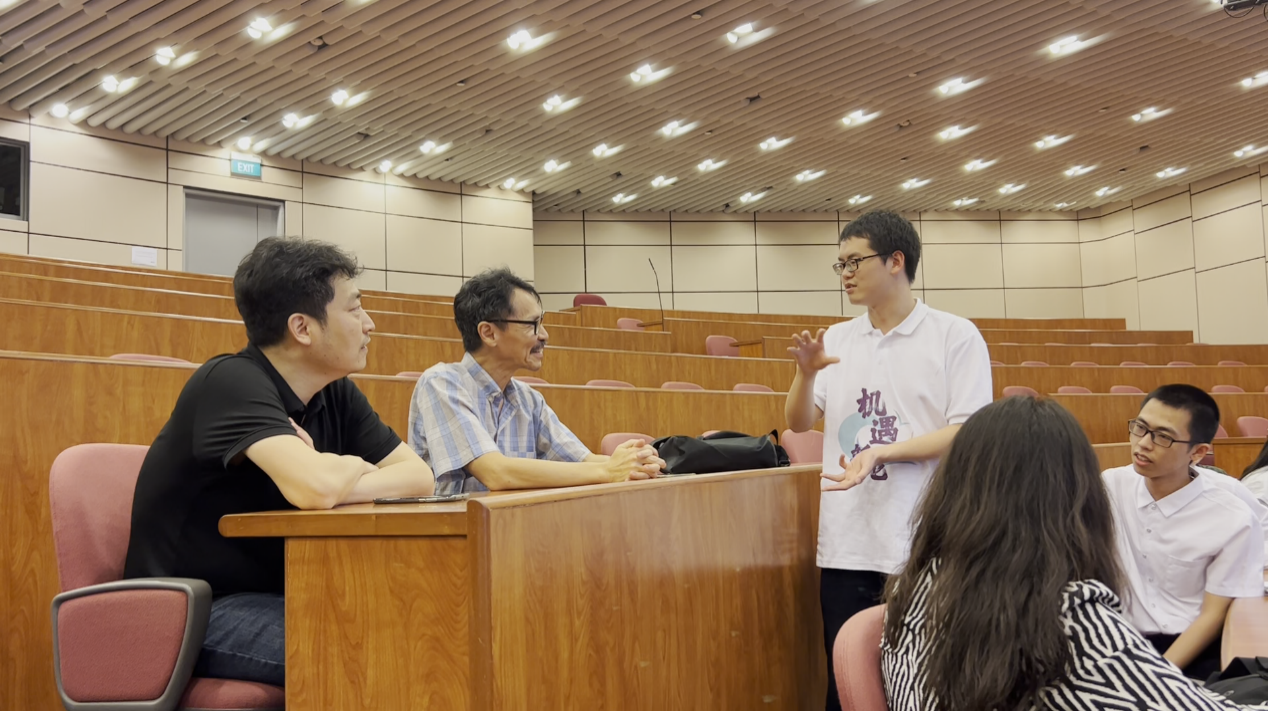
The team members from Tsinghua’s Department of Mechanical Engineering discuss with Professor Marcelo H ANG Jr.
The National University of Singapore is one of the most prestigious public research universities in Asia. On Feb 1, the team from Tsinghua’s Department of Mechanical Engineering visited the university on an academic exchange. The team members learned about the university’s talent training, the significance of the establishment of the Singapore-MIT Alliance for Research and Technology (SMART) and the importance of international exchanges and cooperation in student training. Thanks to the considerate arrangements of Professor Marcelo H ANG Jr, the team was able to be hands-on with some scientific and technological innovation results, such as self-driving cars, self-driving wheelchairs and deep learning robots.

Members of Tsinghua’s Spark Class go to Europe and communicate with Professor Herbert Mayr.
Members of Tsinghua’s Spark Class visited the University of Munich in Germany on Feb 7. In the office of Professor Herbert Mayr, member of the German National Academy of Sciences, students discussed the modern energy shortage in Europe and corresponding scientific and strategic solutions with him.
Experiencing the Industry’s Cutting Edge Technologies
Philips is a global leader in the research, development, commercialization and production of medical imaging. On Feb 8, the team of Tsinghua’s School of Medicine was invited to conduct an investigation at the company. Guided by Philips staff, the team visited the company's medical equipment exhibition hall, and immersed themselves in the advanced medical equipment and the people-oriented innovative medical scenarios. The trip broadened their horizons in terms of their professional cognition, refined their understanding of how to put research and commercialization thinking of biomedical engineering into practice, and provided inspiration for their future development.
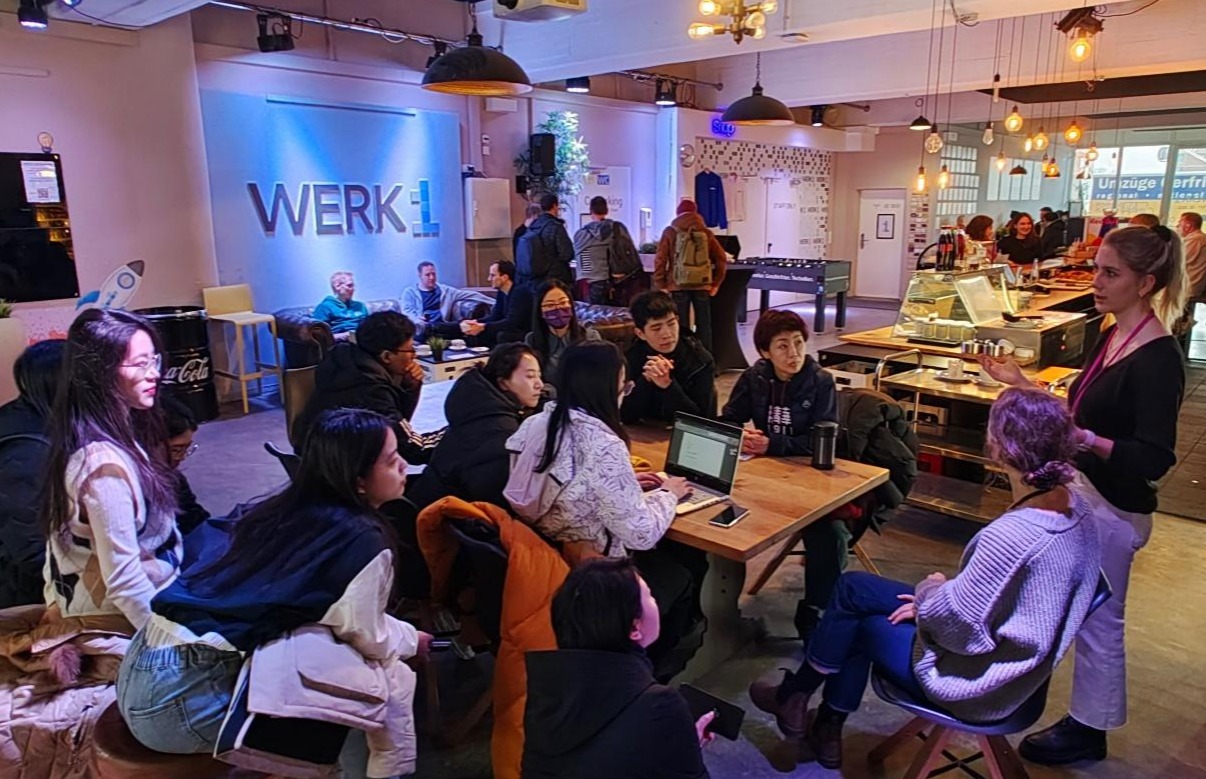
Members of Tsinghua’s School of Economics and Management go for Europe and communicate with head of the WERK1 incubator
On Feb 13, a team from Tsinghua’s School of Economics and Management visited the WERK1 incubator in Munich. As one of the most prestigious incubators in Munich, WERK1 currently has 32 digital startups, and has accumulated more than 300 million euros in venture capital. The team members learned about the related services provided by WERK1 for startups, systematically went through the guidance services and mentor programs of WERK1, and gained a basic understanding of how WERK1’s mechanism works for the innovation and entrepreneurship of small and medium-sized enterprises in Munich.
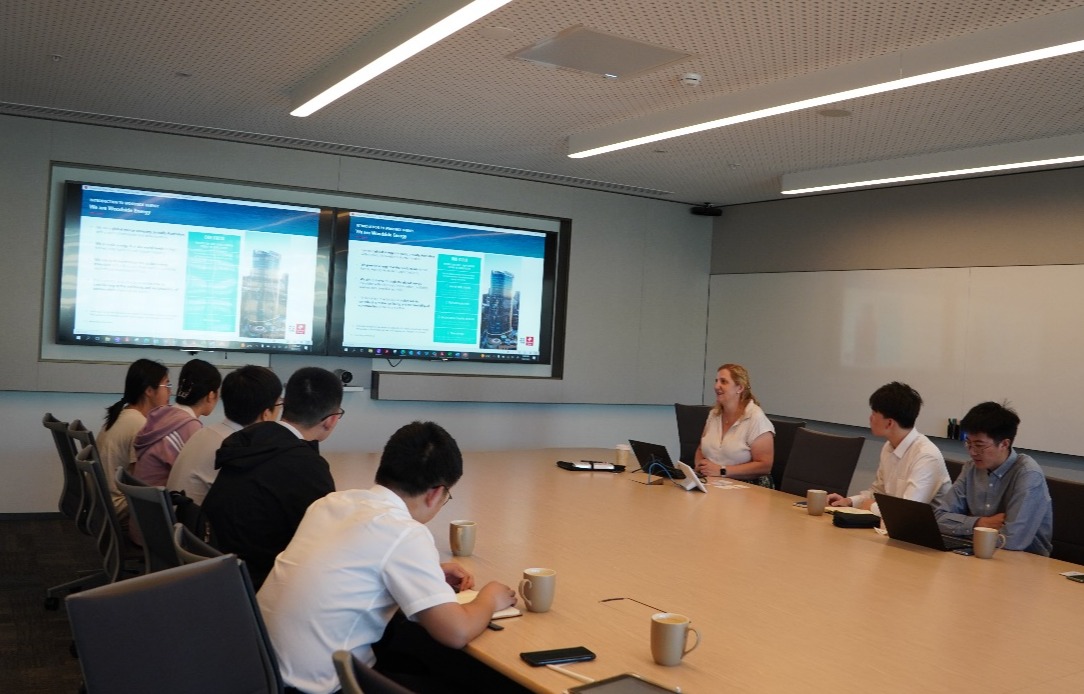
Members of Tsinghua’s Department of Energy and Power Engineering communicate with heads of local energy and resource enterprises
Western Australia is rich in oil and gas resources, wind energy, solar energy and other renewable energy resources. On Feb 9, the team of Tsinghua’s Department of Energy and Power Engineering visited Woodside Energy and other energy resources enterprises in Western Australia to learn about their efforts in developing and utilizing renewable energy, and to investigate the current state of the technology and the market for converting renewable energy into new clean energy, such as hydrogen and ammonia.
Feeling China’s Strengths
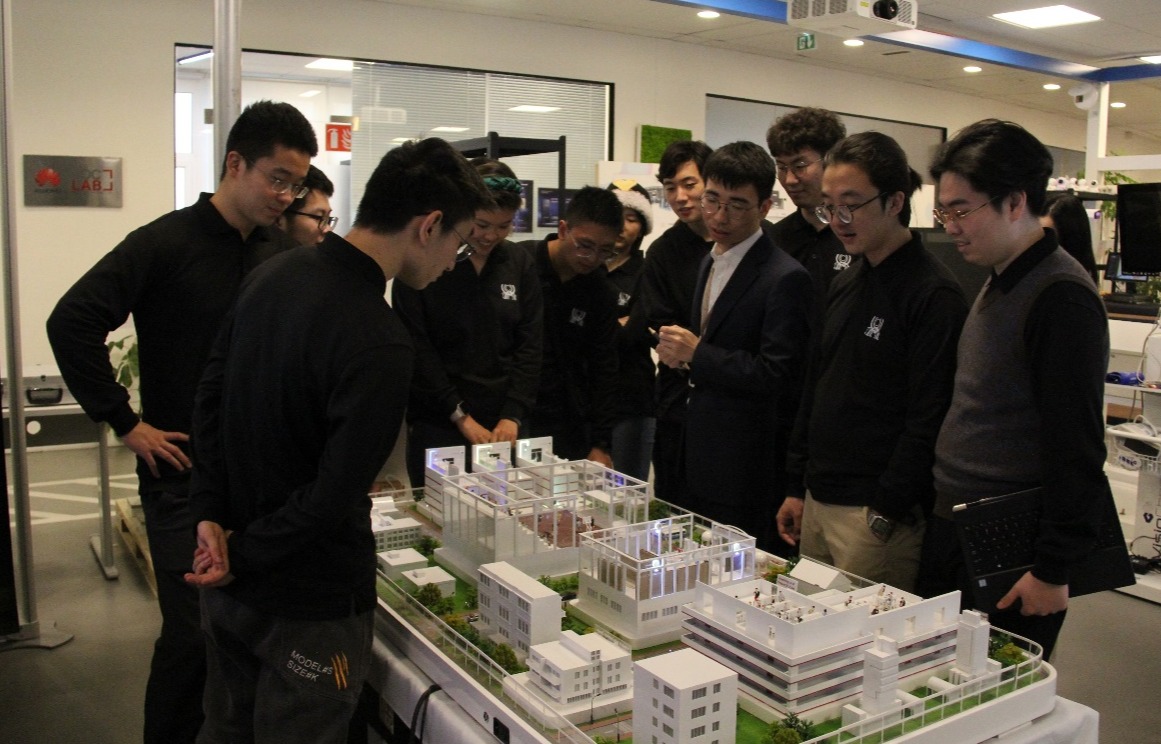
Members of Tsinghua’s Siyuan Program learn about smart campus solutions at Huawei’s Open Lab in Paris.
On Feb 3, a team from Tsinghua’s Siyuan Program visited Huawei's Open Lab in Paris, to explore smart campus solutions and gain an in-depth understanding of Huawei's leading technology and innovative ideas for a digital campus. From the perspective of living on campus, the team members discussed the functions and advantages of the platform in terms of educational resource sharing, teaching management collaboration, student information services, and campus security. This trip deepened their understanding of the combination of advanced technology and higher education.
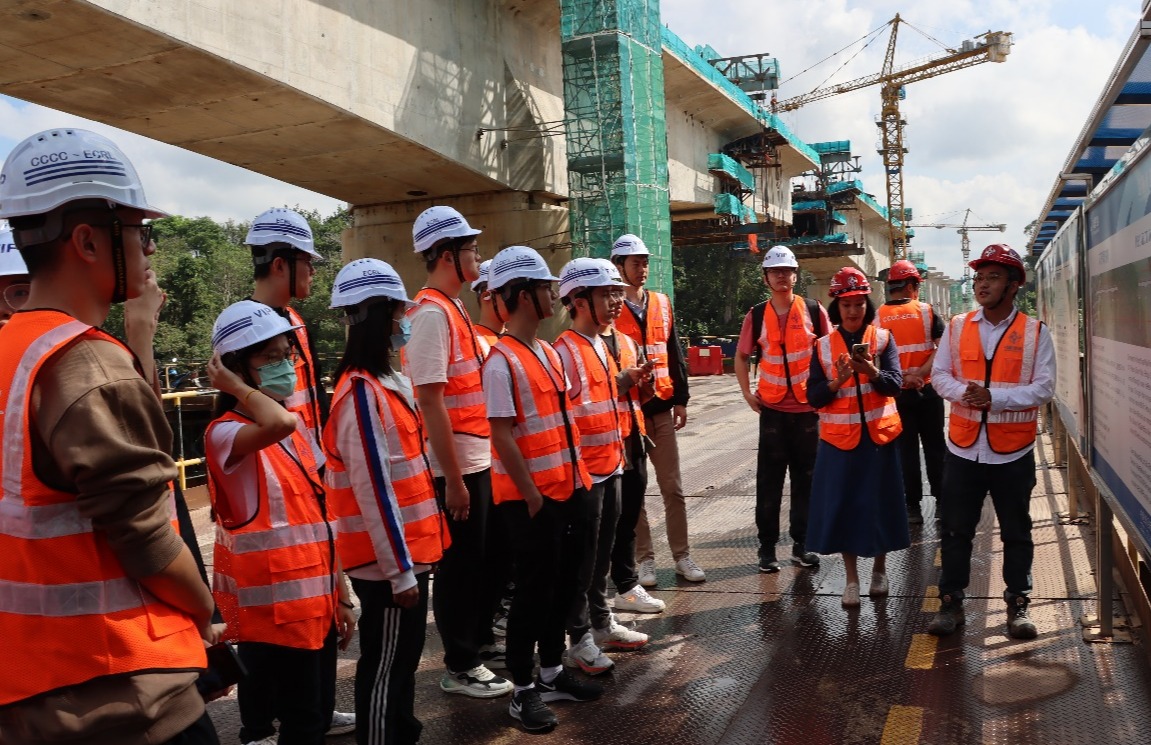
Members of Tsinghua’s Department of Hydraulic Engineering go to Malaysia and visit the East Coast Rail Link Project.
The East Coast Rail Link (ECRL) project in Malaysia is a railway project undertaken by the China Harbour Engineering Company, and also the largest overseas infrastructure project of China under the Belt and Road Initiative. On Feb 10, a team of Tsinghua’s Department of Hydraulic Engineering took part in an onsite investigation of the ECRL project. They exchanged ideas regarding the key points and difficulties in the construction at Pahang River Bridge with Chinese engineers of the project, and discussed potential solutions.
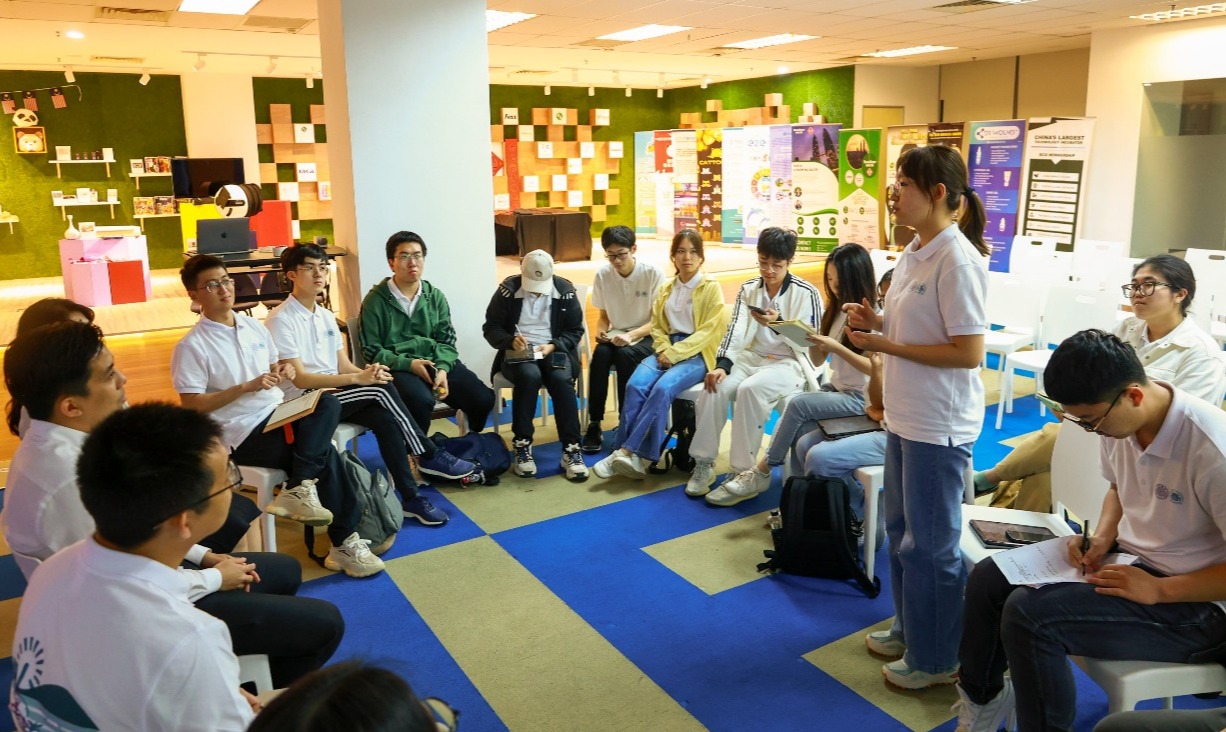
At TusStar, members of Tsinghua’s Weiyang College discuss technology incubation with Tsinghua alumni in Southeast Asia.
A team from Tsinghua’s Weiyang College arrived at TusStar in Kuala Lumpur on Feb 7, and discussed technology incubation with alumni of Tsinghua in Malaysia and leaders of TusStar. The team members visited TusStar’s incubator and heard from Liu Zhiwei, president of Tsinghua’s Alumni Association in Malaysia. In the free communication session, team members held a discussion with Tsinghua alumni and TusStar staff on topics such as scientist and technician training, innovation and entrepreneurship, and incubation results.
Editor: Li Han

